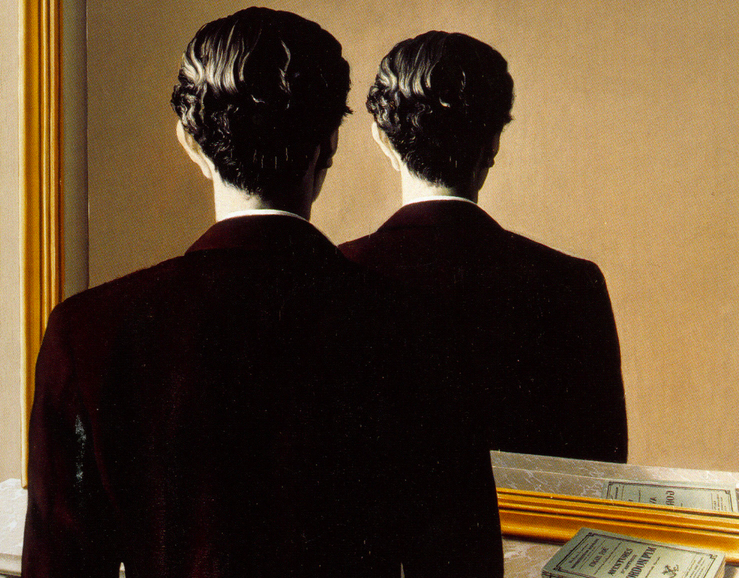Petty competitive jealousy is a mean-spirited little imp I have yet to fully master. It’s better these days, as I get older and at least wiser than my younger self, but it still loves to crawl out of the dark occasionally and squat on my shoulder, whispering churlish opinions into my ear, blackening my thoughts temporarily and making me peevish about the object of that moment’s ire.
Luckily, for better or worse, it really only does this under one, very specific condition: when I’m on social media.
I’ll see the objects of my displeasure living their best lives and the imp will be watching right along with me.
“Oooooh, will you look at that,” it’ll say. “Isn’t that lovely for them, getting all the goodies … nice for some, don’t you think … pity you’re such a loser, hey?”
Asshole.
But I don’t bear it grudges anymore. It’s come in small doses and done a great job in my life so far. Jealousy can be useful that way, pointing you in the direction of where you need healing or where your desire wants to find expression. I mean, I’ve never been jealous of cake bakers, right?
Anyway, the point of this post isn’t about jealousy, but rather the mechanism that flips it into action: social media and social proprioception.
“Social proprioception”, a phrase I heard once but can’t find a reference to anywhere, is like proprioception – the sense that allows you to orient your body parts in space – but for your social context.
In other words, it’s how you orient your identity in the vast, ever-changing, near-metaphysical fluid that is your social environment.
Pre-2000s, social identity – and how we understood ourselves in context – was much like the 4th of Hundertwasser’s 5 skins wrapped around the individual.
After her epidermis, clothing, and housing, an individual’s 4th skin is her social environment – her friends, family, nation – and her identity based on how she may or may not differ from these.
In other words, the pre-2000s days, who you were was shaped by your crew: your friends, your family, your neighborhood, your city, your country. If there was any touchstone, any comparison about where you were in life and how you defined yourself, it was a comparison pegged against these contexts.
The ultra-wealthy, the elite, the celebrities, the super skilled and talented – they were somewhere else entirely. People to admire or envy maybe, but people so far out of your 4th skin reality that checking the value of your own personal experience of life against theirs wouldn’t have crossed your mind.
Sure, you might have wanted that life badly, you might even have emulated it, but you wouldn’t sit on the toilet paging through a glossy featuring the heady lives of Paris Hilton or Julia Roberts and think, “Holy fuckballs, what is wrong with me, my character, my commitment to success, my purpose in LIFE, that I’m not rolling in blow at The Viper Room or holding an Oscar?”
None of it was ever that personal.
And then the 2000s happened, and along came the great democratization of information and celebrity; along came YouTube and Facebook and smartphones that could access the internet and Twitter and LinkedIn and Wattpad and Instagram and TikTok and and…
And here we are.
All the world is our 4th skin.
Our social proprioception – who we are in the where we are; how we are defined in the context of our community – is now pegged against a million, million ordinary lives, all of which are curated and created on platforms that function only to suit the demands of late-stage capitalism.
When I peg my progress and possibility as an author or storyteller – when my social proprioception feelers go out to shape and confirm who I am in the tribe and what my value is there – I am not doing so against the handful of actual authors I know in person or the small community in South Africa. It is against the whole world’s community of authors and writers.
And then it’s not only what they do as authors and writers, but how well they fair as content creators, feeding the mill of the platforms to expend themselves for engagement which will, one can only hope, lead to a book sale or a writing gig.
Of course, it’s not just writers.
For artists it will be how they are content creators for their art, musicians their music, thought leaders and businesspeople their consulting work… Even the average person not selling something is pitching an idea of value about their individuality when they post to social media.
And every time we log on to witness these offerings to the tribe or tally how much “love” our own offerings received, our social proprioception feelers creep out, subconsciously checking our own position in the tribe, weighing up our value, setting our social identity against how we differ or conform.
It’s exhausting.
Often, it’s depressing.
You don’t even need to be doing anything. If social media catches you on a bad day, even the good stuff you see can make you feel like a lump: look at all those artists and musicians and explorers and do-gooders doing great work and there you are just lying in bed like a useless skin tag scrolling and scrolling and scrolling…
Sigh.
I don’t think there’s a solution to this. Social media is great for so many things, simply logging off isn’t an option. At least not for me. At least not for now.
But I do think being aware of your social proprioception feelers and how (unfairly and unjustifiably) far they’re expected to travel now is a good place to start protecting yourself – and by that, I mean your sense of identity and value – from the worst social media has to offer.
Anyway. These were just some thoughts this week.
Hope life is treating you right, even if it feels wrong.
t



